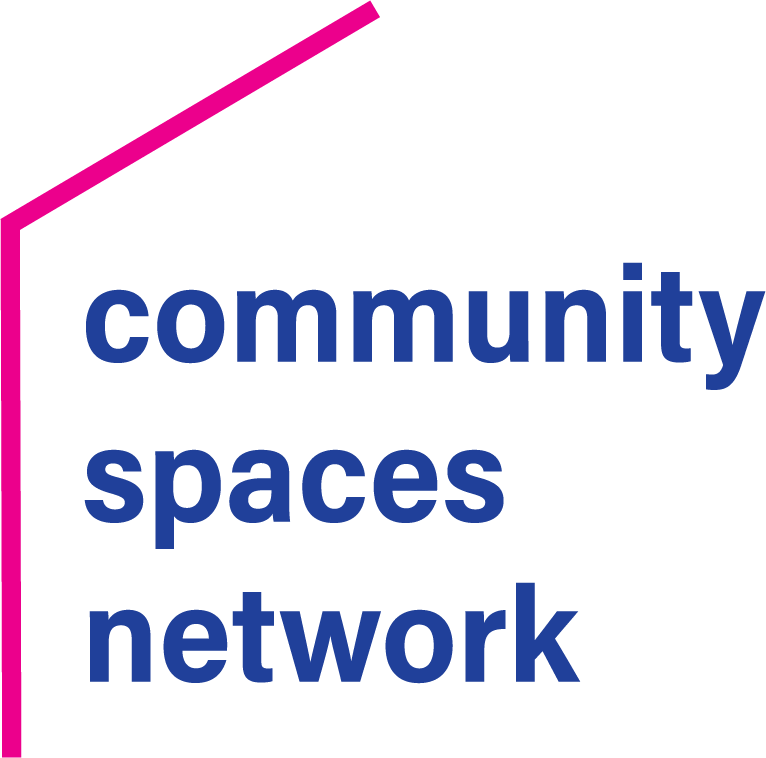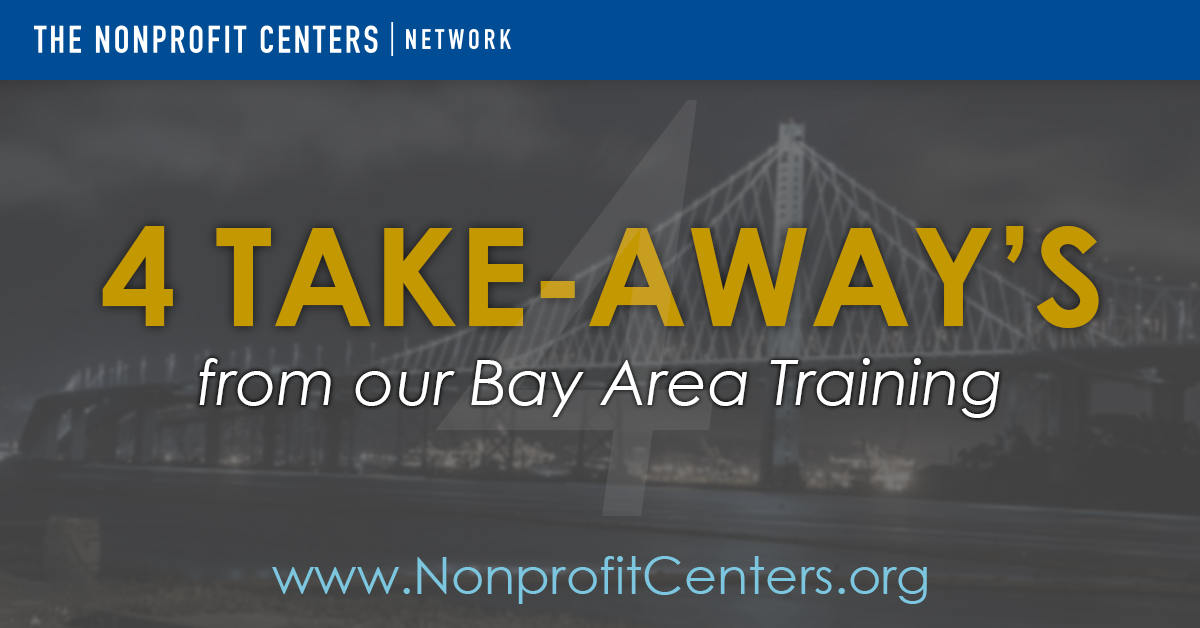 Just back from a whirlwind trip to the Bay Area where I got to visit seven nonprofit centers: Tides Thoreau Center, Fort Mason Center, Ed Roberts Campus, Ninth Street Independent Film Center, David Brower Center, The Lab and The Flight Deck. Large and small, grassroots to institution-led, these centers encompass everything from the arts to serving those with disabilities. In addition, our trainings sparked some remarkable conversations. I thought I would share some of the highlights and lessons I learned.
Just back from a whirlwind trip to the Bay Area where I got to visit seven nonprofit centers: Tides Thoreau Center, Fort Mason Center, Ed Roberts Campus, Ninth Street Independent Film Center, David Brower Center, The Lab and The Flight Deck. Large and small, grassroots to institution-led, these centers encompass everything from the arts to serving those with disabilities. In addition, our trainings sparked some remarkable conversations. I thought I would share some of the highlights and lessons I learned.
- Special Event Rentals: Are They Cost Effective? Several spaces I visited are drilling down on how to best utilize their event/conference space. One is analyzing its various spaces (some small and some very large) to see how often they are booked, how much revenue they generate and what fully-loaded costs are involved. Is there an optimal event/conference space for your market? What’s too big and what’s too small? Could some event spaces generate more revenue as office space? That’s a hard decision to make since revenues and expenses aren’t always tied back to specific space rentals but I’m interested to hear if others are doing similar analyses. It may be worth exploring if you suspect you’re not generating as much special event revenue as you hoped.
- Tips for Moving Day: Several attendees at our events were interested in the nuts and bolts of moving in together. Here’s my to-do list:
- Values Discussion – what norms do you want to establish from Day 1? Make sure to involve all staff, not just executive directors.
- Regular Check-Ins – establish weekly meetings to review move-in issues to keep communication flowing. As punch-list items decrease, these check-ins could become monthly, quarterly or annual.
- Have Fun – Plan some (mandatory) social gatherings and structure them so everyone in the building has a chance to meet others, learn the other organizations’ mission(s) and establish trust.
- Anticipate Hot Topics – IT, building security, kitchen policies, parking, after hours, pets.
- Collections: What’s your policy around accounts receivable? Are you strict about collecting what is owed to you (rent, parking fees, service charges, late fees)? For mission-driven nonprofit centers, this issue can present a dilemma. Our centers are often created to support financially fragile community organizations who need landlords who are flexible and not solely focused on profit. But as social enterprises, we need to be financially sustainable in order to continue to provide space and other resources. How do you balance these tensions? How do you shift your approach if you’ve been too flexible in the past and need to shift to a stricter enforcement? We don’t have all the answers but we are interested to hear how you have solved this challenge.
- Our Energize attendees shared these top resources they love:

- Podio.com – project management tool
- BetterEvaluation.org – information on evaluation techniques
- GroupSite.com – where social networking and collaboration meet
- Calendly.com – scheduling software
- Slack.com – project management software
- BOMA.org – Building Owners and Managers Association
- TechSoup.org – connects nonprofits with tech products and services
- WealthEngine.com – for research on individual donors
- IdealWare.org – helping nonprofits make smart technology decisions
- Make Space: How to Set the Stage for Creative Collaboration – book on shared space design
- Basecamp.com – software for project management
- Fiverr.com – freelance services marketplace
- SproutSocial.com – social media software
- Nexudus.com – white label coworking software
- Kindful.com – donor database software
What are your top resources for your mission-driven shared space? I’d love to hear them!

